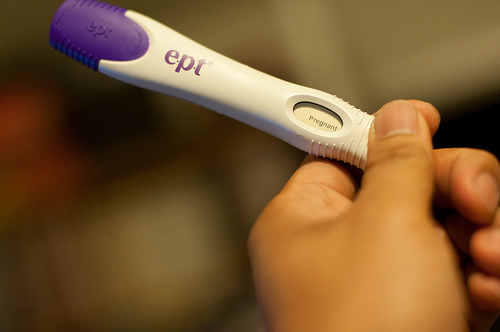Are you in the “Waiting to Try to Conceive” time period of your life? Many women who are thinking about trying to get pregnant will make significant lifestyle changes towards this goal. Some common first steps include:
- Quitting smoking, drinking, and any drug or substance use.
- Beginning an exercise program.
- Taking prenatal vitamins daily.
- Eating a nutritious diet.
- Scheduling a preconception visit with your midwife or OB/GYN.
These are wonderful first steps to take. However, I would go a few steps further to address two issues that aren’t as commonly recommended toward your TTC/preconception time period.
1) Familiarize yourself with the Fertility Awareness Method (FAM).
FAM is a great way to get to know your body, whether you are trying to conceive a child, trying to avoid pregnancy, or just wanting to get a better understanding of your gynecological health. It teaches you to recognize and interpret your body’s natural fertility signs. If you are in the preconception time period, FAM will help you to know 1) if you are ovulating regularly, 2) how to predict when you will ovulate so you can properly time intercourse, and 3) if you are having any potential fertility problems. The last reason is a big one, because it can give you information to take to your fertility doctor, and it can potentially save you lots of time, money, and extensive testing by helping you to identify or rule out certain issues more easily. While FAM can’t guarantee a quick conception, it does give a lot of information that can make your odds of conception more likely.
Want to find some great places to start learning about FAM? Try Fertility Flower (FF), which I recommend for its holistic focus and its personal feel. It offers a blog, forums, and the ability to chart your cycle online to observe your patterns of fertility. However, I have found that Taking Charge of Your Fertility(TCOYF), which is not as holistically minded, is stronger in its extremely active community and streamlined online charting. I use both sites for different reasons- FF for keeping me on track with eating real, nourishing food and paying attention to how I am feeling in all aspects throughout my cycle, and TCOYF for the visual layout of charting and interacting with other users. Both sites offer free and paid “premium” member accounts.
2) Consider what you’re putting in your body.
I never really knew what “nutrient dense nutrition” meant until about the past year, when I began to explore our nation’s food systems and eating habits. I was alarmed to realize the lack of variety, nutrients, and real food that we actually consume. Much of America’s “food” is more a product of nutritional science than of nature- and we are more deeply entrenched in this problem than you might think. Also, we consume a large amount of toxins through our food, skincare products, and various household items. How does this relate to preconception, you ask?
Well, we need good nutrition for our bodies to function well, correct? And one of our bodies’ natural functions is to ovulate each month. Also, it stands to reason that putting harmful chemicals into our body on a daily basis can adversely affect our body’s performance in the long run. What we put into our bodies can, and often does, affect both our abilities to function as well the quality of the eggs we release. It may not be necessary for every woman to significantly change what she consumes in order to conceive, and conversely, an intense dedication to eating real, nourishing food and throwing out every chemical source may not solve fertility issues for every woman. However, it is most definitely an aspect to consider in the preconception period- and it certainly can’t hurt!
Some of my favorite blogs and websites that address good health to prepare for pregnancy (and just in general!) are Naturally Knocked Up, Modern Alternative Mama’s page on natural pregnancy, and Environmental Working Group. I am still learning about this area, and if you ever come to my home you will see that we are definitely not “crunchy snobs” in these areas. We still have some chemical cleaners, we don’t buy organic all the time, and I’m not above Domino’s pizza. However, we are, as a rule, trying to make small changes bit by bit (that are in line with our budget) that will help our overall health- and hopefully will help us when we’re ready to try to conceive #2!
What about you? Are any of you in the “waiting to try” period? What changes are you making in your lifestyle to prepare for pregnancy? Share your stories!

